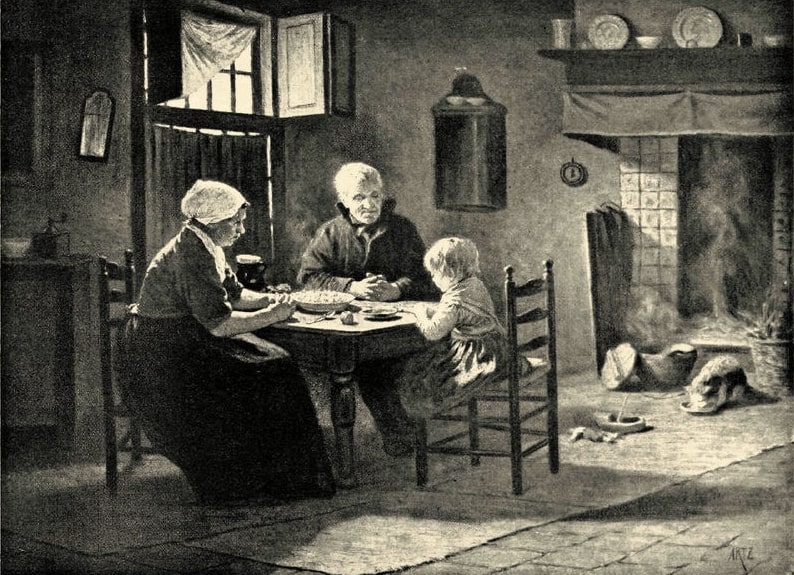Introduction: In this article, the first of two, Jessica Edwards gives tips for researching your grandparents if they came from another country. Jessica has had a lifelong interest in her family’s history – especially on her father’s side, which goes back to the first settlers in Pennsylvania, Jamestown and New England – and has documented and added more than 21,000 people to her family tree!
A person born in another country can become an American citizen through a process called “naturalization.” The decision to become naturalized is voluntary – it is not required. If your grandparents became naturalized, there is a good chance some important records exist that could help with your family history research – the challenge is knowing where to find such records.

Naturalization
From the National Archives:
“Prior to September 27, 1906, any ‘court of record’ (municipal, county, state, or federal) could grant United States citizenship. Often petitioners went to the court most geographically convenient for them. As a general rule, the National Archives does not have naturalization records created in state or local courts.
“However, a few indexes and records have been donated to the National Archives from counties, states, and local courts. Researchers should contact the National Archives facility serving the state in which the petitioner resided to determine if records from lower courts are available. In certain cases, county court naturalization records maintained by the National Archives are available as microfilm publications. Records from state and local courts are often at state archives or county historical societies.
“Beginning September 27, 1906, U.S. naturalization law imposed a fee structure that encouraged the transfer of naturalization to Federal courts. It took time for the lower courts to let go of the practice, so researchers may need to look at lower courts if the National Archives does not maintain a record of naturalization from the early-mid 20th century.”
Naturalization was a two-step process* that usually took a minimum of five years. After an alien resided in the United States for two years, he/she could file a “declaration of intention” (sometimes called the “first papers”) to become a citizen. After three more years, they could “petition for naturalization” (the “second papers”). If the petition was granted, a certificate of citizenship was issued to the petitioner. These two steps did not have to take place in the same court.
[*Exceptions can include cases of derivative citizenship (which is given to children who have green cards and whose parents become naturalized U.S. citizens – or in recent years, to foreign-born children adopted by U.S. citizen parents, if certain conditions are met), processes for minor aliens 1824-1906, and special consideration for veterans.]
More from the National Archives:
“If a naturalization took place in a Federal court, naturalization indexes, declarations of intention (with any accompanying certificates of arrival), and petitions for naturalization will usually be in the National Archives facility serving the state in which the Federal court is located. No central index exists.”
How can you make use of naturalization documents? In the rest of this article (and in Part II, tomorrow) I will explain how, including links that show examples of other documents you may come across, and terms you will need to understand.
Some Terms You Will Need to Know
- Citizenship: the state of being vested with the rights, privileges, and duties of a citizen.
- Declaration of Intention: written acknowledgement that he/she would like to become a citizen of the country they have moved to.
- Immigration: the process by which a person leaves the land of his or her birth to obtain citizenship or to live in another country.
- Naturalization: the process by which an immigrant becomes a citizen.
- Petition for Naturalization: formal request for the issuance of a certificate of citizenship.
Naturalization Records
Usually when an immigrant wanted to become a citizen, they would file a “Declaration of Intention” with their local county courthouse – and between two to five years later, would petition the court for citizenship. If all went smoothly, the immigrant would be accepted as a citizen.
Along the way, other documents might be created or needed. Not only are naturalization records interesting alone, but they also provide clues to the ancestor’s country of origin, their date of arrival in America, and sometimes even reveal what ship they arrived in.
Many an ancestor detective has heard an immigrant story from their oral history gathering and set out to find that ancestor’s immigrant records. Many found out that, after sometimes years of researching, they had the wrong name, or the wrong year of arrival.
How best to proceed? In tomorrow’s Part II of this article, I’ll present a two-step process to find and use your ancestor’s naturalization records.
Happy Hunting!

I have not been able to locate my great grandparents’ passports or petitions through Ancestry. I don’t know where to write to in PA. I have a certificate number for my grandfather.
You can write to the Department of Health (supply them with the grandparents’ full names (if known), dates of birth, arrival, death, etc., and be sure to include your relationship (they will not disclose info to non-relatives). You can also see if the Department of Naturalization has anything. If the member of your family registered for a draft over the time they lived here you may also find some information (and documentation) on them, and if they ended up serving then they may have a file with that branch of the military (when I got my father’s it had 45 pages of documents, as every time he had leave they had to fill out a form, and if he took classes in the military or tests to increase possibly his rank another form was filled out). Just be aware that there has been some loss of documentation over the years due to fires, so the records may not be complete. Feel free to contact me if you try these and still need more direction.
Happy Hunting!